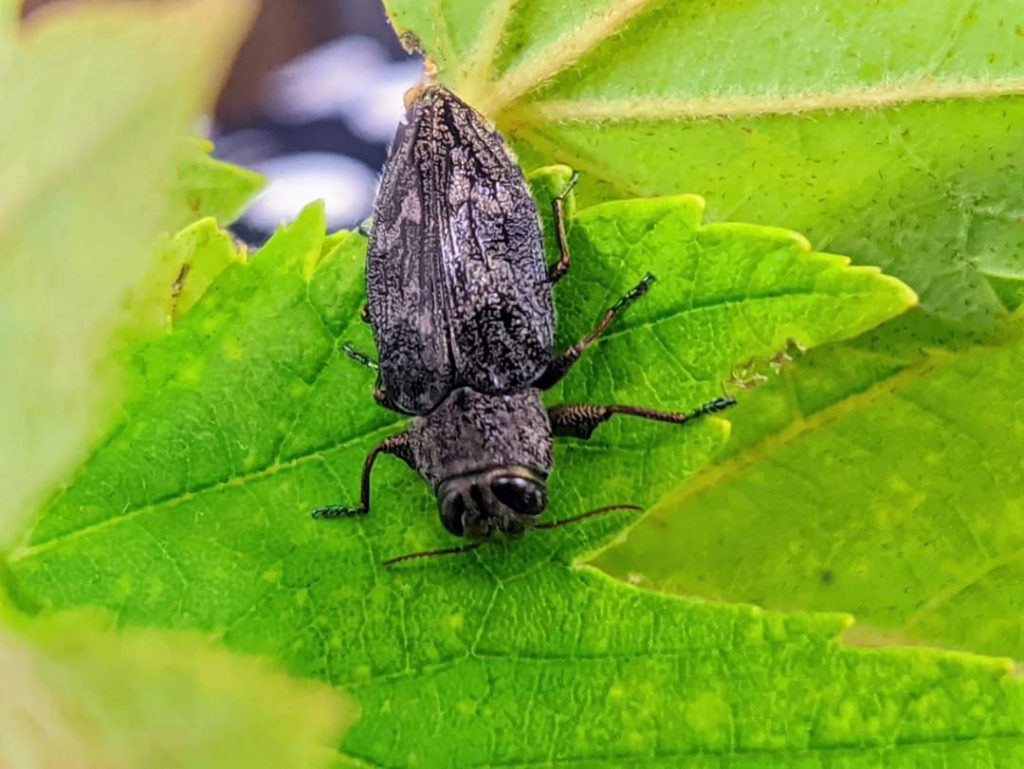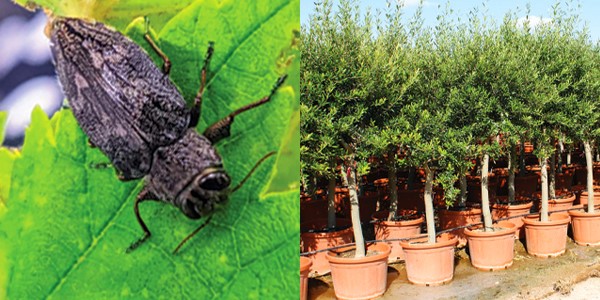NASHVILLE, Tenn. (TSU News Service) – Tennessee State University has received a $6 million federal grant to lead a nationwide team of researchers in the development of new tools to manage a woodboring beetle that attacks trees. The grant’s directors in TSU’s College of Agriculture say the research could have a global impact.

The funds were awarded by the U.S. Department of Agriculture-National Institute of Food and Agriculture and will focus on the flatheaded borer, or Flatheaded Borer Management in Specialty Crops.
“These borers cause serious damage to the nursery industry, and sometimes a single borer can kill or severely weaken a small tree,” says Dr. Chandra Reddy, dean of TSU’s College of Agriculture. “Researchers will develop new tools for managing woodborers that attack trees in nursery, landscape, nut and fruit orchard systems. I am delighted and proud of our team that is leading this national effort.”

Karla Addesso, associate professor of entomology, is the project’s director. Entomology Professor Jason Oliver is co-director. Both are in the Department of Agricultural and Environmental Sciences at TSU’s Otis L. Floyd Nursery Research Center in McMinnville, Tennessee.
Altogether, Drs. Addesso and Oliver will lead 24 researchers, including three more from TSU: Drs. Fulya Baysal-Gurel, Anthony Witcher and Prithviraj Lakkakula. The others are from the University of Tennessee, Rutgers University, North Carolina State University, Clemson University, University of Georgia, USDA-ARS-Byron, University of Florida, Texas A&M, University of California and Oregon State University.
Besides Tennessee, researchers say the flatheaded borer is becoming a problem in places like Florida, California, Oregon and Texas. And with the use of the grant, they’re hoping to confirm their pest status in other states, like North Carolina, Georgia, and Alabama.

“This beetle attacks trees everywhere,” says Addesso. “Current climate issues are causing them to be more problematic.”
Oliver says the flatheaded borer genus Chrysobothris also occurs on other continents in the world, “so project outcomes that improve management of Chrysobothis species in North America could have implications for management in other parts of the world.”
Researchers say some of their objectives with the four-year grant include: cost benefit assessments of flatheaded borer management strategies and risk analysis to guide producers in decision-making; identifying factors that make trees susceptible to attack; and evaluation of new insecticides that have recently entered the market to fight flatheaded borers.

“More environmentally friendly biological options like entomopathogenic nematodes have not been investigated at all with this borer group, and that is one aspect of this project,” says Oliver.
Additionally, researchers say the project will provide training to several graduate students, which will prepare them to either pursue further advanced degrees or to work in the field of entomology. The Entomological Society of America presently has about 5,000 members.
One of those graduate students is Alex Gonzalez, who is currently pursuing a master’s at TSU in agricultural sciences, with a focus on entomology. However, the recent grant award has enticed him to pursue a Ph.D. and continue his studies in entomology, particularly on woodborers like the flathead.

“I can work long-term studying these insects,” says Gonzalez, who is originally from Honduras. “It’s an honor to have this research at TSU. We will have data that will be beneficial to the whole agricultural section.”
To learn more about TSU’s College of Agriculture, visit http://www.tnstate.edu/agriculture/.
Department of Media Relations
Tennessee State University
3500 John Merritt Boulevard
Nashville, Tennessee 37209
615.963.5331
About Tennessee State University
Founded in 1912, Tennessee State University is Nashville’s only public university, and is a premier, historically black university and land-grant institution offering 39 bachelor’s degree programs, 24 master’s degree programs, and seven doctoral degrees. TSU is a comprehensive research intensive institution with a R-2 Carnegie designation, and has a graduate school on its downtown Avon Williams Campus, along with the Otis Floyd Nursery Research Center in McMinnville, Tennessee. With a commitment to excellence, Tennessee State University provides students with a quality education in a nurturing and innovative environment that prepares them as alumni to be global leaders in every facet of society. Visit the University online at tnstate.edu.
